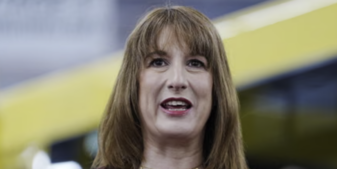MPs have urged Rachel Reeves to move forward with gambling tax hikes despite bookmaker ‘scaremongering.’
In a report by the Treasury Select Committee, MPs accused betting firms of exaggerating the damage tax rises could cause to the industry.
They encouraged the Chancellor “not to cave into industry scaremongering” and argued taxes should accurately reflect the social harm some forms of gambling can cause.
Last month, Betfred threatened to shut all betting shops in the UK if proposals were made official – the latest of a string of major firms to declare intentions to downside alongside William Hill, Ladbrokes and Coral.
That could mean higher duties on the most addictive products like high-street slot machines and online casino games, but it is not expected to impact horse racing.
Reeves’ Treasury team is currently finalising her second budget as Chancellor, set to be delivered on Wednesday, November 26.
In September at Labour’s annual party conference in Liverpool, Reeves was adamant that gambling operators “should pay their fair share.”
Former Prime Minister Gordon Brown called on the government to raise gambling taxes to prevent a social crisis.
The idea is higher duties on the gambling industry can help fund scrapping the two-child benefit cap which restricts child tax credit and universal credit to the first two children in most households.
The Institute for Public Policy Research (IPPR) think tank suggests Reeves could generate an additional £3.2 billion a year for the budget with the move.
With her main focus on casino games and slot machines, currently taxed at 21% of gross profit, that number could jump to as high as 40% in the near future.
Recent analysis from EY, commissioned by the Betting and Gaming Council (BGC), revealed the tax increases would not raise anything like the sums the IPPR estimates.
Their studies showed it would risk the loss of 40,000 jobs, almost half of the 109,000 people currently deployed directly and indirectly by the industry with £8.4 billion of consumer spending ready to be diverted to unregulated, unlicensed operators.
EY believes the government will generate just over £1 billion in additional funds in the short term but when considering factors like job losses, lower corporation and National Insurance contributions as well as closed betting shops, it could account for less than £500 million.

